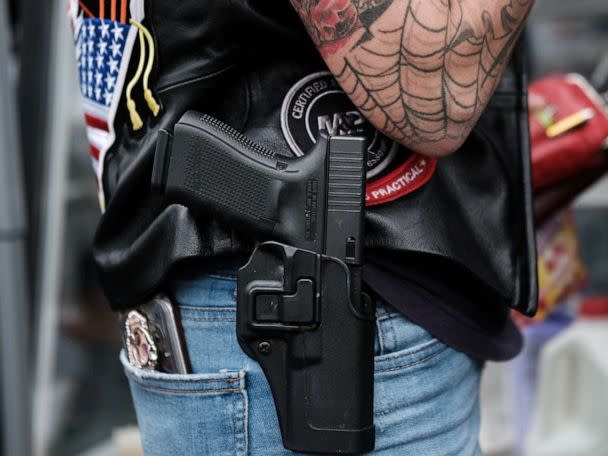‘Joseph Blocher, professor of law and co-director of the Center for Firearms Law at Duke Law School, described the patchwork of state laws that exists across the country as a "buffer zone" for the Second Amendment.
"Before you even get to the Constitution, there's a huge array of other laws super protecting the right to keep and bear arms," Blocher said. "This collection of laws is giving individuals lots of protection for gun-related activity that the Second Amendment would not necessarily require, and certainly, and in almost all of these instances, that no lower court has said the Second Amendment would require."
Adam Winkler, a professor of law at the UCLA School of Law, also said the Second Amendment is losing its legal relevance in distinguishing lawful policies from unlawful ones as the gap between what he calls the "judicial Second Amendment” and the "aspirational Second Amendment" widens.
Winkler defines the "judicial Second Amendment" as how courts interpret the constitutional provision in their decisions, and the "aspirational Second Amendment" as how the amendment is used in political dialogue. The latter is "far more hostile to gun laws than the judicial one," he said -- and also more prevalent.
"The aspirational Second Amendment is overtaking the judicial Second Amendment in American law," he wrote in the Indiana Law Journal in 2018, a sentiment he repeated in a recent interview with ABC News. "State law is embracing such a robust, anti-regulatory view of the right to keep and bear arms that the judicial Second Amendment, at least as currently construed, seems likely to have less and less to say about the shape of America's gun laws."’
In the bitter debate over gun control, battle lines are often drawn around the Second Amendment, with many in favor of gun rights pointing to it as the source of their constitutional authority to bear arms, and some in favor of tighter gun control disagreeing with that interpretation. Joseph...

www.yahoo.com
This is why meaningful, constructive, good faith debate concerning the Second Amendment, its meaning, and its application as a matter of regulatory law is impossible.
The judicial Second Amendment camp and the political Second Amendment camp will always be at odds, never finding consensus or agreement – with the former following Second Amendment jurisprudence as determined by the Supreme Court and the latter having nothing but contempt for the Court and its decisions concerning the Second Amendment.

